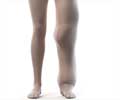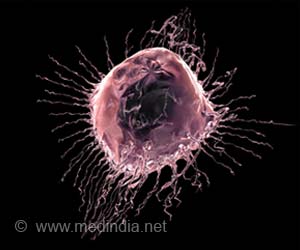Progress in rehabilitation and physical therapy management of cancer-related lymphedema.

‘Lymphedema is a complication of cancer treatment that occurs due to fluid build-up in soft tissue and results in swelling in places where lymph nodes have been removed.’





New Research Builds on Past Progress in Lymphedema Management Lymphedema is a complication of cancer treatment that occurs due to fluid buildup in soft tissue, resulting from damage to the lymphatic system. Patients with lymphedema experience painful swelling and limitation of function of the limbs or other areas.
Complex decongestive therapy (CDT) is the multi-modal treatment for lymphedema carried out by a skilled therapist. However, in order to optimally manage the condition, some components of CDT need to be carried out by the patient on a daily basis. Self-care plays an important role for patients with lymphedema, and may include daily self-massage, skin care, compression therapy, and exercise. However, for some individuals with lymphedema, performing daily self-care poses a challenge.
Dr. Helene Lindquist, RPT, PhD, and Tommy Nyberg, MSc, and their research group at Karolinska Institute, Stockholm, performed a study to identify characteristics of women who needed extra support to self-manage their lymphedema. The study included data on 88 Swedish women, average age 62 years--most with arm lymphedema after breast cancer treatment.
Self-care practice
Advertisement
A wide range of demographic, clinical, psychological, and physical characteristics were significantly related to self-care practice. Factors associated with lower rates of daily self-care included low scores for well-being, body image, and self-esteem; ethnicity other than Swedish; depressed or anxious mood; and poor sleep quality.
Advertisement
Dr. Stout notes that the special issue appears two decades after a seminal report by the American Cancer Society on lymphedema management. Since then, management of lymphedema has become "far more mainstream," with ongoing research, clinical practice guidelines, and improved access to specialist care. Other topics in the special issue include patient assessment, considerations for advanced training for physical therapy professionals in lymphedema care, and new imaging approaches.
Other papers report on sophisticated technologies like low-level laser therapy. These advances open the possibility of developing wearable sensors and cloud-based apps to provide patients with daily feedback on their condition and individualized updates for support and prevention. Dr. Stout concludes, "The future is bright, the future is smart, and we must continue to seize on opportunities to advance novel approaches to lymphedema management."
Source-Eurekalert








